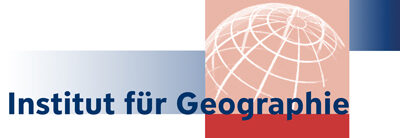Markus Lambracht
Markus Lambracht, M.A.
Research Associate and Projectmanager in the Working Group Regional Development of Prof. Dr. Tobias Chilla
Newsroom: www.regionalentwicklung.bayern
Research
Research focus on European Spatial Development, Border Studies as well as Regional Economic Geography, thereby especially on quantitative analysis and data visualization.
PhD-Project:
‘Relief matters?’ The role of relief in socioeconomic development based on the example of the Alpine region.
Due to their geographical location, mountain regions are often perceived as socioeconomically disadvantaged areas. From the perspective of traditional geography, regions are seen as physically-spatially given and thus have long been subject to a deterministic understanding of space. In constructivist social geography, spaces were then seen as the results of social (negotiation) processes, which tends to reject the explanatory significance of the relief.
With the ‘material turn’ in the spatial sciences, concepts with a post-discursive orientation have increasingly come to prominence in recent times, emphasizing not only relational perspectives but also the importance of non-discursive ways of considering space. Materiality, i.e. the physical nature of spaces, has regained relevance after being broadly absent from constructivist approaches. In the context of these debates, functional arguments now assume a new significance.
This is where my research on the Alpine region in terms of socioeconomic development comes in. In my research, I focus on the role of relief – in the sense of topography and surface structure – in relation to the development of socio-economic trends in mountain regions. In a narrow sense, spatial patterns with comparable initial situations in terms of relief and location and their development paths are of particular interest. Through a combination of statistical calculations with remote sensing data, spatial patterns in the Alpine region are first identified and relations are explored. These spatial patterns are then assessed and contextualized by case studies.
The work highlights the role of surface structure as a material spatial aspect for the socioeconomic development of mountain regions. To overcome geo-deterministic simplifications, specifics are elaborated at the smallest possible spatial level (share of settlement area in the total area, differences in altitude, accessibility, etc.) and combined and scrutinised in a multi-faceted way.
Publications
- Lambracht, M. (2023): Spatial development in the European Alps: Topographic Potential Area as a basic indicator for policy debates, Papers in Applied Geography, DOI: 10.1080/23754931.2023.2264289
- Bertram, D., Chilla, T. & M. Lambracht (2023): The Alpine settlement system: capturing relevance beyond size, Journal of Maps, DOI: 10.1080/17445647.2022.2164229
- Chilla, T., Bertram, D. & M. Lambracht (2023): Städte und Siedlungssystem der Alpen. In: Geographische Rundschau, 3 (2023) (Themenheft Der Alpenraum), 14-19.
- Chilla, T. & M. Lambracht (2023): Regionalräte: Bestandsaufnahme und Potentialanalyse im Bereich der grenzüberschreitenden Zusammenarbeit, Studie im Auftrag des Auswärtigen Amts, DOI: 10.13140/RG.2.2.35119.82089
- Chilla, T. & M. Lambracht (2022): Institutional mapping of cross-border cooperation. INTERREG programme analyses with KEEP data, European Planning Studies, DOI: 10.1080/09654313.2022.2058321
- Chilla, T., D. Bertram & M. Lambracht (2022): “Alpine Towns – Key to Sustainable Development in the Alpine region. Part 1: Facts, Maps and Scientific Debates.” In: 9th Report on the State of the Alps, DOI: 10.13140/RG.2.2.36022.98880/1
- Chilla, T., Bertram, D., Lambracht, M. & C. Wilhelm (2022): Innerdeutsche Vernetzung von Grenzregionen. Dokumentation des Workshops von 16./17. Mai 2022 im Auftrag des Bundesministeriums des Innern und für Heimat, Technical Report, DOI: 10.13140/RG.2.2.25321.16484
- Chilla, T., S. Hippe & M. Lambracht (2022): Evaluation des Bayerischen Zentrums für Tourismus (BZT); im Rahmen des Vorhabens BZT — Evaluierung der Förderung und der Entwicklungsoptionen; im Auftrag des Bayerischen Staatsministeriums für Wirtschaft, Landesentwicklung und Energie (StMWi)
- Chilla, T., S. Hippe & M. Lambracht (2022): Kontextinformationen zur Evaluation des Bayerischen Zentrums für Tourismus – Wirtschaft, Wissenschaft, Vernetzung; im Rahmen des Vorhabens BZT — Evaluierung der Förderung und der Entwicklungsoptionen; im Auftrag des Bayerischen Staatsministeriums für Wirtschaft, Landesentwicklung und Energie (StMWi)
- Chilla, T. & M. Lambracht (2022): ARGE ALP – Eine starke Region trotz oder wegen der Berge? In: Staudigl, F. & P. Bußjäger (Hg.): Von der “Revolution der Provinzen” zur Zukunft des Alpenraumes: 53-64. Online unter: https://www.newacademicpress.at/gesamtverzeichnis/politik/von-der-revolution-der-provinz-zur-zukunft-des-alpenraumes/
- Bertram, D. et al. (2019): Räumliche Integration: Das Beispiel der bayerischen Grenzregionen zu Österreich und Tschechien. Working Paper No. 3 der AG Regionalentwicklung an der FAU. Online unter: https://www.geographie.nat.fau.de/files/2017/12/Lefo_19_Raeumliche-Integration-Bayern.pdf.
Projects
- AlpTextyles (2022-2025): Collaborative solutions for a heritage & consumer sensitive relocalization of sustainable, circular, and innovative Alpine textile value chains; Projectpartner and Working Package Leader (Classic Project in the Interreg Alpine Space Programme 2021-2027)
- Report on the State of the Alps, focus on Alpine towns (2020-2022) (on behalf of the Swiss Federal Office for Spatial Development, together with Climonomics). Further information about the RSA9 can be found here
- ESPON ACTAREA (2020-2022): Thinking and planning in areas of territorial cooperation – web app (with Spatial Foresight and University of Geneva)
- Evaluation of the Bavarian Centre for Tourism (BZT) (2022): As part of the project Bavarian Centre for Tourism – Evaluation of funding and development options; commissioned by the Bavarian State Ministry for Economic Affairs, Regional Development and Energy (StMWi)
Curriculum Vitae
- Since 2021: Research Associate and Projectmanager in the Working Group Regional Development of Prof. Dr. Tobias Chilla at the Institute of Geography
- 2018 to 2021: Master studies in Cultural Geography (FAU Erlangen-Nuremberg) with focus on Regional Development, Master thesis on „Cross-Border Governance – Cooperation intensity and degree of institutionalization of regional cross-border cooperation in German border regions“
- 2017 to 2020: Student assistant at the Institute of Geography, i.a. in the Working Group Regional Development of Prof. Dr. Tobias Chilla
- 2015 to 2019: Bachelor Studies in Cultural Geography (FAU Erlangen-Nuremberg)

